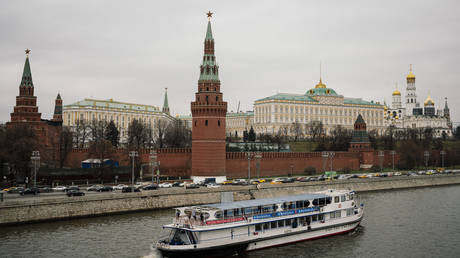
Washington needs to revamp its Russia policy, steer away from permanent sanctions and allow genuine talks, because failure to do so may cost the US dearly, retired top US officials and academics say.
US-Russian relations have gone into a “dangerous dead end” and it’s up to the US to rethink how it should proceed, an open letter published in Politico on Wednesday said. The current course simply undermines American interests and is based on wishful thinking that mistakenly claims that Russia would somehow change to meet US expectations.
The letter was penned by some top retired US diplomatic officials with Russia experience, like former presidential adviser Fiona Hill and former US Ambassador to Russia Jon Huntsman Jr. It was undersigned by dozens of prominent public figures, who served at a senior level in various US administrations or belong to the academia.
The former officials argued that tension between Washington and Moscow today posed the same existential threat of a nuclear exchange that existed during the Cold War, but without the willingness to genuinely talk with each other that existed back then. “Our foreign-policy arsenal [has been]reduced mainly to reactions, sanctions, public shaming and congressional resolutions” targeting Russia, the letter said.
With national interests of the two countries often being in conflict with each other, their relations can be “a mix of competition and cooperation” in the best case scenario. But current US foreign policies undermine even that.
For example, anti-Russian sanctions in their current form are of no use in terms of diplomacy. Their steady accumulation “reduces any incentive Moscow might have to change course since it considers those sanctions permanent.”
The antagonism not only poses direct military risks and otherwise puts the two countries on a collision course, but also prevents the US from getting help from Russia when it deals with China, the letter said.
US perception of current Russian foreign policy as an aberration that would go away one day along with President Vladimir Putin is a major misconception on the part of Washington, the authors said. Contrary to it, Putin’s eventual successor would most likely operate in the same “strategic framework deeply rooted in nationalist traditions” that the Russian people and elites support.
“Premising US policy on the assumption that we can and must change that framework is misguided,” the letter said.
The US should “engage Russia in a serious and sustained strategic dialogue that addresses the deeper sources of mistrust and hostility and at the same time focuses on the large and urgent security challenges facing both countries.”
Like this story? Share it with a friend!




